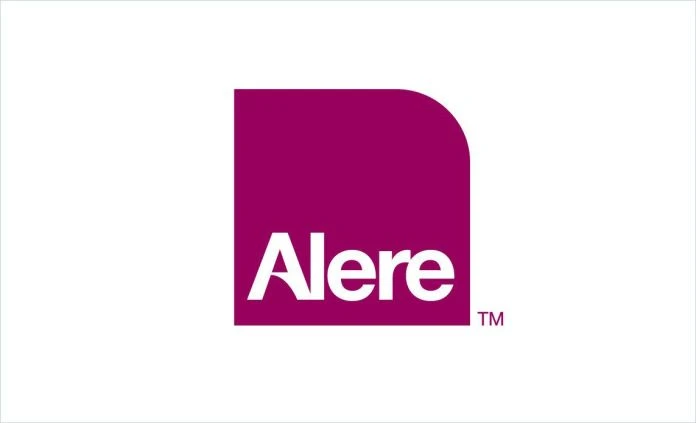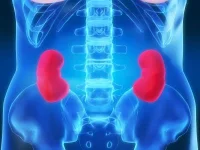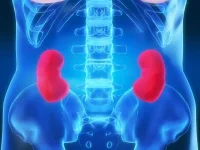Alere Inc. is pleased to announce the results of a study published this week in Critical Care, demonstrating that plasma neutrophil gelatinase-associated lipocalin (pNGAL), a biomarker that aids in the early detection of acute kidney injury (AKI), improved the diagnosis of AKI when added to clinical judgment.
Patients presenting to the emergency department (ED) may suffer from AKI that is not yet clinically apparent. A significant number of these patients go on to develop severe AKI that leaves them dependent upon dialysis or renal replacement therapy (RRT), compromising the quality of their long-term health and increasing the risk of death. Previous studies have independently demonstrated pNGAL’s utility in the early detection of AKI, yet little research exists on the additive value of pNGAL in the ED to help reduce clinical uncertainty faced by physicians when assessing the risk of patients suffering from AKI.
A group of investigators led by Dr. Salvatore di Somma, M.D., at the San Andrea Hospital, Rome, Italy, studied whether pNGAL levels could provide information that enhanced the initial clinical judgment of ED physicians when used with all other standard- of-care parameters for assessing AKI. The study included 665 patients from three clinical centers who were admitted to the hospital after presenting to the ED with various acute conditions.
Upon initial examination, each patient received a medical history review, demographics were gathered, and admission serum creatinine (sCr) was noted. SCr, while the current gold standard for detection of AKI, typically indicates AKI many hours after injury, which may delay appropriate therapy. The treating ED physicians then assigned patients to one of two categories, “AKI” or “No AKI,” and noted their levels of diagnostic confidence as a value ranging from 0% to 100%.
pNGAL concentrations were also measured at ED presentation and several other times during the patient’s hospitalization using the Alere Triage® NGAL point-of-care test. Following discharge, expert nephrologists, who were blind to any NGAL values, reviewed each patient case and made a final adjudicated diagnosis of “AKI” or “No AKI.”
Based on the ED physician’s initial clinical judgment, 218 patients (33%) were considered to have AKI, while only 49 cases (7%) were ultimately adjudicated to be true cases of AKI. AKI was over-predicted in nearly 78% of cases which were initially judged by the ED physicians to have AKI ((218-49)/218)=77.5%), suggesting that unnecessary therapies may have been administered in these instances. Additionally, the physician’s initial clinical assessment missed AKI in 20% of cases that were ultimately adjudicated to be AKI.
The addition of pNGAL level at presentation was shown to improve the classification of patients into the “AKI” or “No AKI” categories by 32.4%. Moreover, pNGAL measured on arrival was found to be the most powerful predictor of death in these patients.
“ED physicians must make critical treatment decisions that may affect the kidneys, yet it is very difficult to determine if AKI is occurring with current standard of care assessments,” said Prf. di Somma, the study’s lead investigator. “With today’s increasing waiting periods in the ED, the pressures are greater than ever to make rapid assessments and adapt treatment accordingly. Having a point-of-care biomarker test can help ED clinicians promptly assess the presence of AKI to provide more timely and appropriate care for these patients.”
In busy emergency departments, timely, appropriate disposition and treatment decisions are critical. Often these decisions are made with limited information and in the face of clinical uncertainty. Today’s methods for diagnosing AKI rely on repeated, delayed assessments of creatinine and urine output over time. A snapshot of creatinine upon presentation to the ED provides limited information to helpfully complement clinical judgment. When used at the point of care, the Alere Triage® NGAL test provides critical data that may help ED clinicians not only detect, but also rule out AKI early, informing appropriate treatment decisions.
Advance online publication of the study is available on the publisher’s website at: http://ccforum.com/content/17/1/R29/abstract
Patients presenting to the emergency department (ED) may suffer from AKI that is not yet clinically apparent. A significant number of these patients go on to develop severe AKI that leaves them dependent upon dialysis or renal replacement therapy (RRT), compromising the quality of their long-term health and increasing the risk of death. Previous studies have independently demonstrated pNGAL’s utility in the early detection of AKI, yet little research exists on the additive value of pNGAL in the ED to help reduce clinical uncertainty faced by physicians when assessing the risk of patients suffering from AKI.
A group of investigators led by Dr. Salvatore di Somma, M.D., at the San Andrea Hospital, Rome, Italy, studied whether pNGAL levels could provide information that enhanced the initial clinical judgment of ED physicians when used with all other standard- of-care parameters for assessing AKI. The study included 665 patients from three clinical centers who were admitted to the hospital after presenting to the ED with various acute conditions.
Upon initial examination, each patient received a medical history review, demographics were gathered, and admission serum creatinine (sCr) was noted. SCr, while the current gold standard for detection of AKI, typically indicates AKI many hours after injury, which may delay appropriate therapy. The treating ED physicians then assigned patients to one of two categories, “AKI” or “No AKI,” and noted their levels of diagnostic confidence as a value ranging from 0% to 100%.
pNGAL concentrations were also measured at ED presentation and several other times during the patient’s hospitalization using the Alere Triage® NGAL point-of-care test. Following discharge, expert nephrologists, who were blind to any NGAL values, reviewed each patient case and made a final adjudicated diagnosis of “AKI” or “No AKI.”
Based on the ED physician’s initial clinical judgment, 218 patients (33%) were considered to have AKI, while only 49 cases (7%) were ultimately adjudicated to be true cases of AKI. AKI was over-predicted in nearly 78% of cases which were initially judged by the ED physicians to have AKI ((218-49)/218)=77.5%), suggesting that unnecessary therapies may have been administered in these instances. Additionally, the physician’s initial clinical assessment missed AKI in 20% of cases that were ultimately adjudicated to be AKI.
The addition of pNGAL level at presentation was shown to improve the classification of patients into the “AKI” or “No AKI” categories by 32.4%. Moreover, pNGAL measured on arrival was found to be the most powerful predictor of death in these patients.
“ED physicians must make critical treatment decisions that may affect the kidneys, yet it is very difficult to determine if AKI is occurring with current standard of care assessments,” said Prf. di Somma, the study’s lead investigator. “With today’s increasing waiting periods in the ED, the pressures are greater than ever to make rapid assessments and adapt treatment accordingly. Having a point-of-care biomarker test can help ED clinicians promptly assess the presence of AKI to provide more timely and appropriate care for these patients.”
In busy emergency departments, timely, appropriate disposition and treatment decisions are critical. Often these decisions are made with limited information and in the face of clinical uncertainty. Today’s methods for diagnosing AKI rely on repeated, delayed assessments of creatinine and urine output over time. A snapshot of creatinine upon presentation to the ED provides limited information to helpfully complement clinical judgment. When used at the point of care, the Alere Triage® NGAL test provides critical data that may help ED clinicians not only detect, but also rule out AKI early, informing appropriate treatment decisions.
Advance online publication of the study is available on the publisher’s website at: http://ccforum.com/content/17/1/R29/abstract
Latest Articles
AKI, Biomarkers
Alere Inc. is pleased to announce the results of a study published this week in Critical Care, demonstrating that plasma neutrophil gelatinase-associated l...










